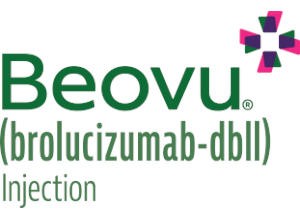Industry News
Therapeutic Goods Administration Approves Beovu
 The Australian Therapeutic Goods Administration (TGA) has approved Beovu, a product of Novartis, for the treatment of neovascular (wet) age-related macular degeneration (AMD). The decision was based on quality (chemistry and manufacturing), nonclinical (pharmacology and toxicology), clinical (pharmacology, safety and efficacy) and risk management plan information submitted by the sponsor. The benefit-risk profile of Beovu was considered favourable for the therapeutic use approved.
The Australian Therapeutic Goods Administration (TGA) has approved Beovu, a product of Novartis, for the treatment of neovascular (wet) age-related macular degeneration (AMD). The decision was based on quality (chemistry and manufacturing), nonclinical (pharmacology and toxicology), clinical (pharmacology, safety and efficacy) and risk management plan information submitted by the sponsor. The benefit-risk profile of Beovu was considered favourable for the therapeutic use approved.
Wet AMD is a chronic, degenerative eye disease caused by an excess of VEGF, a protein that promotes the growth of abnormal blood vessels underneath the macula, the area of the retina responsible for sharp, central vision. Fluid that leaks out of these abnormal blood vessels disrupts the normal retinal structure and ultimately damages the macula. The Beovu molecule is engineered to deliver the highest concentration of drug, providing more active binding agents than other anti-VEGFs[2]. By inhibiting VEGF, Beovu suppresses the growth of abnormal blood vessels and the potential for fluid leakage into the retina.
Brolucizumab is a humanised monoclonal single-chain Fv (scFv) antibody fragment. Increased levels of signalling through the vascular endothelial growth factor A (VEGF-A) pathway are associated with pathological ocular angiogenesis and retinal oedema in age-related macular degeneration. Brolucizumab binds with picomolar affinity to VEGF-A isoforms (for example, VEGF110, VEGF121, and VEGF165), thereby preventing binding of VEGF-A to its receptors VEGFR-1 and VEGFR-2. By inhibiting VEGF-A binding to its receptors, brolucizumab suppresses endothelial cell proliferation, thereby reducing pathological neovascularisation and decreasing vascular permeability.



